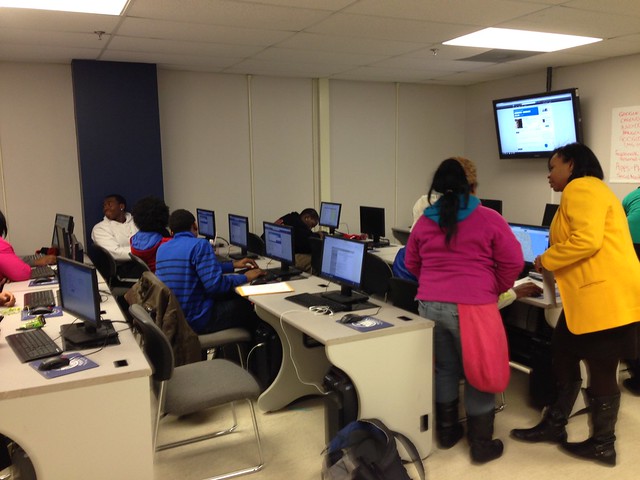“Open” is one of our principles here at Smart Chicago. Right now, most of the small staff and talented consultants who work here are working on our Chicago School of Data project. As is our wont, based on our software philosophy, (“making the smallest amount of software to be useful to the largest amount of people in connecting residents to their government, their institutions, and each other”), we are using lots of lightweight tools to get things done. Here’s a look at them:
Eventbrite: We use this leading ticket tool for managing conference attendance. We have an event page and we get individual emails every time someone signs up to come to the conference on September 19 and 20, 2014. We’re going to use the Eventbrite API to pick up all of the information from event signups and write that to our master list.
Mailchimp: We use Mailchimp in all sorts of our work here– we love it. Great API, great analytics, and easy-to-use email templates. We use it in this project to manage our communication to potential and actual attendees. Their segmenting tools are great, so we’re able to send different emails to people who are already signed up for the conference and people who have yet to get started with our initial data census form.
Wufoo: Wufoo is a wonder. It’s probably the most essential outside tool for us, because it helps us gather so much information and it has a great API that allows us to pull that info into other systems we maintain, include Patterns, which is an in-house tool we use to manage our Civic User Testing Group. We’re using it to
WordPress: We use WordPress for all sorts of websites, including our own. We’re making the conference website using WordPress, and we will be using all sorts of plugins and APIs to use data we collected from other tools. Since lots of the info we want to put on this site is being collected via Wufoo forms, we’ll probably be using something like
Dropbox: We have a Dropbox for Business account where we keep all of our key documents and do lots of sharing with our core stakeholder team. We also use Dropbox integration with Wufoo to allow organizations to upload examples of datasets and reports that they use in their daily work.
Google Docs: We use Google Docs and Sheets mainly for project management and joint composition of things like the agenda and draft emails. All of this content ends up in other systems via simple copy/ paste— no API needed!
Evernote: We used this early on, when doing some initial interviews. We also stored individual complete audio transcripts of interviews, which were later https://dev.evernote.com/doc/
Microsoft Excel: We are working with Oprima-1, a bilingual call center, to do research on and outlook to Chicago organizations that use data to make lives better.They send us daily reports on their work, and we now (after the fact– argghh!) are working to embed that into our own knowledge about these places.
Josh Kalov, who works with Smart Chicago on the Cook County Open Data project and other items, is pulling all of these tools into a cohesive system. More to come!
Meantime, here’s a picture of an awesome Brutalist parking lot in Baltimore, where I was for their Data Day.

